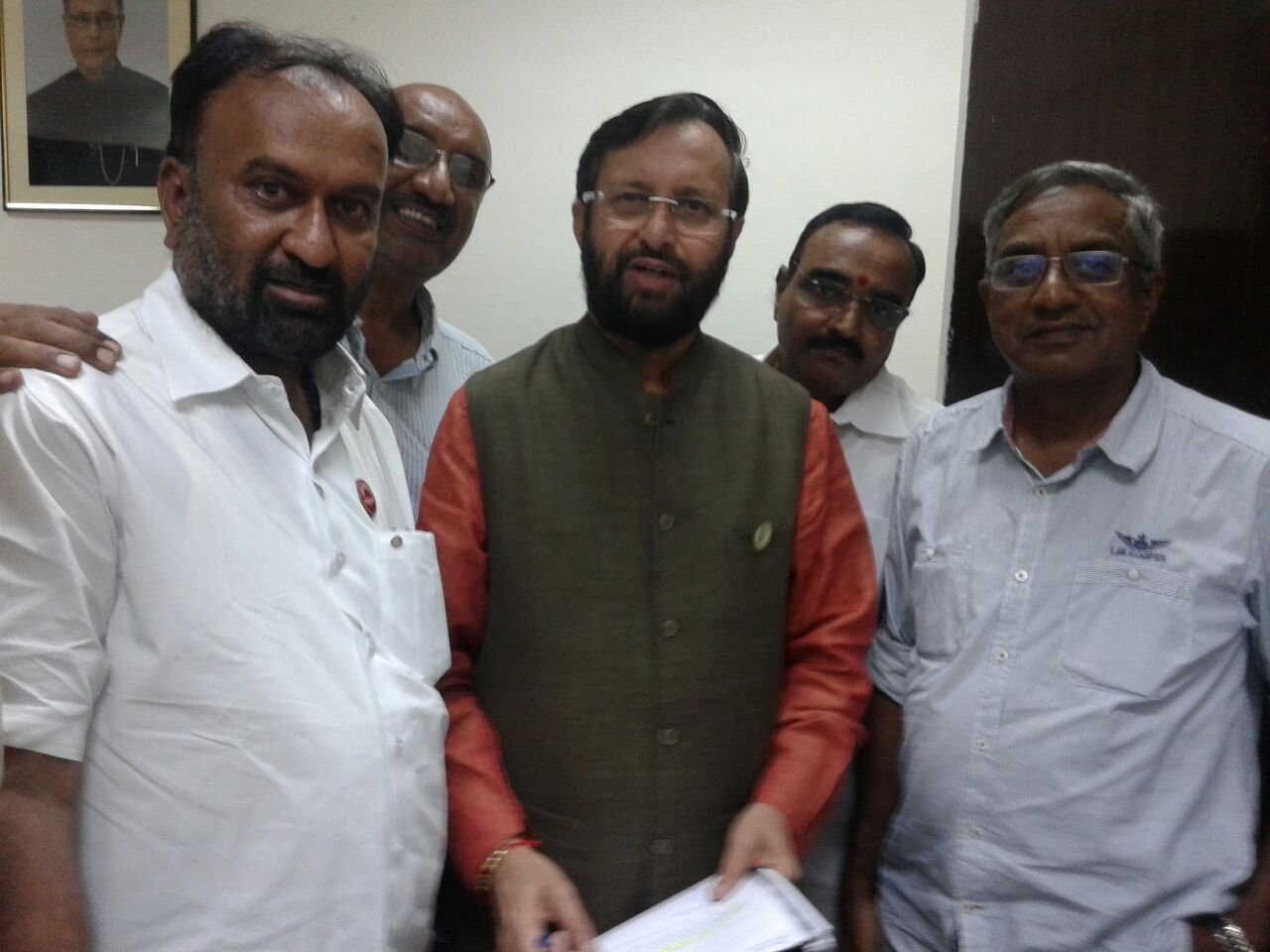Farmers meet environment minister, urge him to start GM crop trials
August 11, 2014 | Monday | News | By Rahul Koul Koul
Farmers meet environment minister, urge him to all GM crop trials
In support of GM crops, Farmer leaders met environment minister, Mr Prakash Javdekar in Delhi.
Farmer leaders from 10 states on Friday lauded union environment minister, Prakash Javadekar's bold statement that science cannot be stopped and urged him to expedite the field trials of GM crops to ensure farmers prosperity. Farmers from National Farmers Empowerment Initiative (NFEI), an umbrella organization of various farmer organizations from across the country, also submitted a signed petition to Shri Javadekar.
"Allow us to take this opportunity to congratulate you for making a bold statement that "Science cannot be stopped" and clearly showcasing the need to allow scientific trials of GM crops. This has rekindled Indian farmers' hopes of receiving new technologies in our fields," the petition said.
Punjab farmer leader Mr PPS Pangli, president of NFEI said, "We fear that a moratorium on research into biotechnology will ultimately have a ruinous effect on us farmers, as we will be denied crucial technology that will enable us to better our lives."
"While our agricultural production has increased, our population has increased too. However, the amount of land we have to cultivate crops will not increase. The amount of water we have to nourish these crops will not increase either. Over the next decade, climate change will result in more pressure on farmers to get a good yield, with unpredictability in weather playing havoc with India's historically rain-fed agricultural system," informed NFEI vice presidents and leaders from Telangana and Maharashtra respectively, Mr S Jaipal Reddy and Mr Gunwantrao Patil.
The petition added, "Till the 1960s, India's farmers were growing straight varieties of crops, using manure and other traditional means to enrich the soil. The fruits of their labour, however, fell far short of meeting the needs of the country. The introduction of high yielding hybrid seeds, advanced technology in the 60s, changed the face of Indian agriculture forever. With hybrid seeds came the combination use of modern fertilizers and irrigation techniques to optimize yields, and India's farmers have not looked back since then."
"It is now time for agriculture in India to take another leap forward. And biotechnology can provide the right impetus. Technology can enable farmers to grow crops even in times of water shortage. Technology can enable crops to use nutrients available in the soil and water in a more efficient manner," added Rajasthan leader Mr Balwinder Singh Kang, joint secretary of NFEI.
If there was ever a ready example of how technology directly translates into improved standards of living for farmers, it would be India's success story in cotton. Since the introduction of hybrid Bt cotton seeds in 2002 and farmers choosing to plant them widely there after, farmers have turned India into the world's second largest exporter of cotton.
Anti-farmer and anti-technology activists have campaigned against the introduction of technology in agriculture at various levels, even approaching and trying to confuse the Courts. Farmers across India were taken aback by a Parliamentary Committee's Report seeking to halt Indian farmers' access to biotech-enhanced seeds, and let for example, farmers in America, Brazil, China, South Africa, Spain and 25 other countries enjoy advantages we would not. It seems like the Committee has spoken to vested interests instead of the vast multitude of farmers who have benefitted from biotechnology and who eagerly await more technology infusion in agriculture, the petition added.
"While there are fears and apprehensions over genetically modified (GM) crops, the solution is to test them in our fields for safety and efficacy, and ensure firm enforcement of the existing robust regulation system. The system of checks and balances, of systematic trials and robust implementation of guidelines must be reinforced," added Mr Pangli.
India needs to grow more, to ensure that every citizen can eat a safe, nutritious and affordable meal, and every farmer can prosper with the freedom to access global farmer technology and market opportunities as millions of young Indians in information technology (IT). Indian agriculture needs to grow to remain competitive in a tightening global economy, and to become an exporter of food to other parts the world, the petition added.









